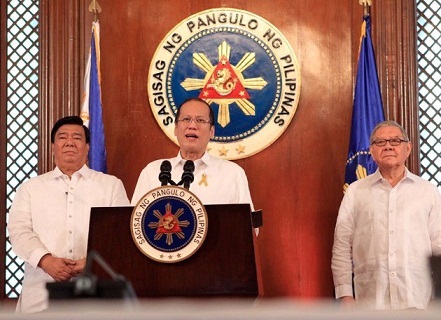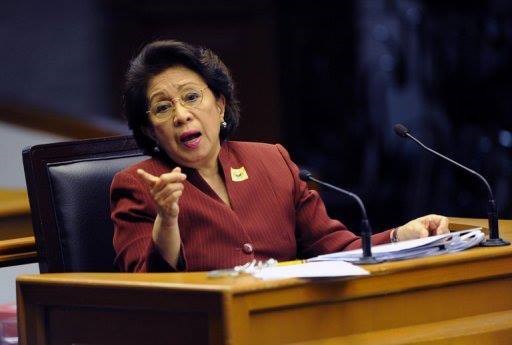
In the first place, no one has a monopoly of good intentions. Adolf Hitler’s concept of a Master race was seen by many Germans as a noble intention for his countrymen. If you listened to Imelda Marcos talk about her lavish projects, they are all in her desire to bring out the “good and the beautiful” in the Filipino. President Duterte justifies his bloody war on drugs as his love for the country.
As one of her last acts before retiring next month, Ombudsman Conchita Carpio Morales approved the resolution of the special panel granting the motion for reconsideration of complainants led by Isagani Zarate, Renato Reyes, Benjamin Valbuena, Mae Paner and others holding accountable Aquino for Usurpation of Legislative Powers under Article 239 of the Revised Penal Code (RPC) in connection with the DAP.
The charge stems from the unlawful issuance of National Budget Circular No. 541 to implement the DAP involving P72 billion, which authorized the withdrawal of unobligated allotments of agencies with low levels of obligations as of 30 June 2012.
Earlier the Ombudsman indictment was limited only to former Budget Secretary Florencio Abad.
The special panel’s May 22 2018 Resolution stated that “a re-evaluation of the case establishes that the individual actions of respondent Aquino and respondent-movant Abad showed a joint purpose and design to encroach on the powers of Congress by expanding the meaning of savings to fund programs, activities and projects under the DAP.
“Abad’s act of issuing NBC 541 cannot be viewed in a vacuum. The evidence on record shows that an exchange of memoranda between [Aquino] and [Abad] precipitated its issuance. Verily, without the approval of the said memoranda by respondent Aquino, NBC 541 would not have been issued,” it further said.
Carpio-Morales Memorandum noted that “respondent Aquino, by marginal notes, specified his unqualified approval on the following requests: (1) grant of omnibus authority to consolidate fiscal year 2012 savings/unutilized balances and its realignment; and (2) grant of authority to withdraw unobligated balances of national government agencies for slow-moving projects/expenditures as of 30 June 2012 and its realignment.”

I retrieved one of my columns on DAP in 2013 for background in the Ombudsman indictment of Aquino:
“DAP surfaced as the new buzzword in political patronage DAP after Sen. Jinggoy Estrada exposed that Malacanang gave each of the 20 senators who voted to convict Supreme Court Chief Justice Renato Corona on May 29, 2012, for culpable violation of the Constitution and betrayal of public trust P50 million each.
“Estrada said it was not a bribe. He called it ‘incentive.’ The public saw it as political patronage, the common practice in political systems to award a special favor to persons whose cooperation the giver needs.
“The evolution of Malacañang’s reactions (I will refrain from saying ‘lies’) on Estrada’s P50 million expose would have been amusing if it were not our hard- earned money.
“In the beginning they outrightly denied it. But some senators confirmed the distribution of the post-Corona largesse. Sen. TG Guingona admitted he got lump sum. Former Sen. Panfilo Lacson, they discussed it in a caucus but he did not get his share.
“Senate President Franklin Drilon, who initially denied it, later said it was the much-maligned PDAF (Priority Development Assistance Fund) which were withheld during the four –month Senate impeachment.
“The Department of Budget later admitted they released lump sums after the Corona impeachment . They gave out the list which showed that Drilon, who was the chairman of the Senate Finance committee got P100 million, Sen. Chiz Escudero P99 million, and then Senate President Juan Ponce Enrile, P92 million.
“DBM changed tune and said it was not PDAF. It’s DAP, Malacañang said. Presidential Spokespeson Edwin Lacierda said they money (P72 billion in 2011) came from the savings.
“’Is savings illegal,’ he challenged critics.”
In July 2014, the Supreme Court declared unconstitutional the following acts committed in pursuance of the DAP: (1) withdrawal of unobligated allotments from the implementing agencies; and the declaration of the withdrawn unobligated allotments and unreleased appropriations as savings prior to the end of the fiscal year without complying with the statutory definition of savings contained in the General Appropriations Act; and (2) the cross-border transfers of the savings of the Executive to augment the appropriations of other offices outside the Executive Branch.
Be First to Comment